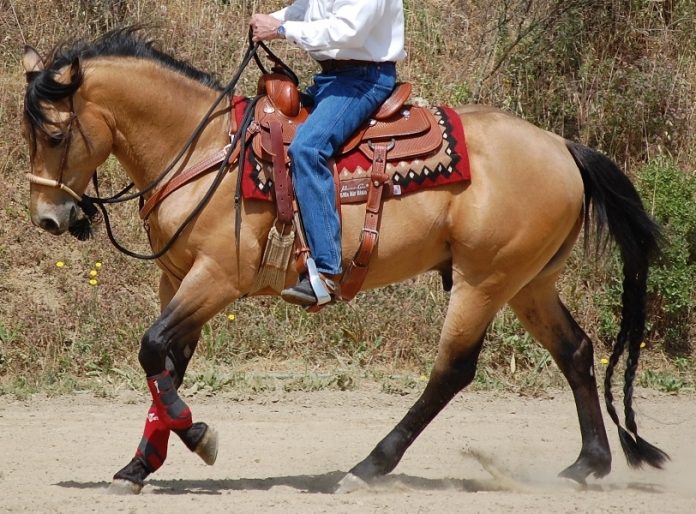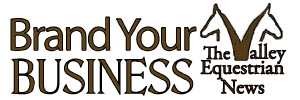We hear the term broke horse and sometimes it has a negative connotation as if it is describing a horse with a broken in spirit. To me the term “broke horse” does not have any negative connotation but most people today prefer “started, started under saddle or finished.” When I was growing up and working with horses in the show world, the term “broke horse” just referred to a stock horse, a western pleasure horse, a trail horse or a horse in so other specific discipline such as a jumper or a dressage horse. 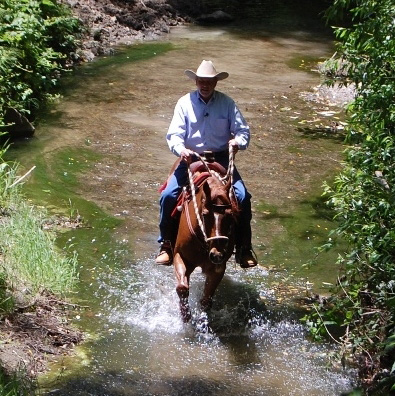
Whatever term you use, you need to be careful about the definition. I had a client tell me his horse had been started under saddle and just needed some finish work. In truth the horse was ridden twice, five years ago. This is what I call a restart because the training has to start from scratch. I’ve seen horses advertised as finished and great on the trail but actually, they still spooked, wouldn’t cross water and gigged all the way home. To me, these behaviors do not describe a “broke horse.”
A broke horse has had a certain amount of training but the training may have been good or bad. Today we use foundation training with as little stress as possible but enough to still get the job done. With a horse, you always have to start at the lowest degree of training needed and build to points A, B and C in a safe, consistent manner. 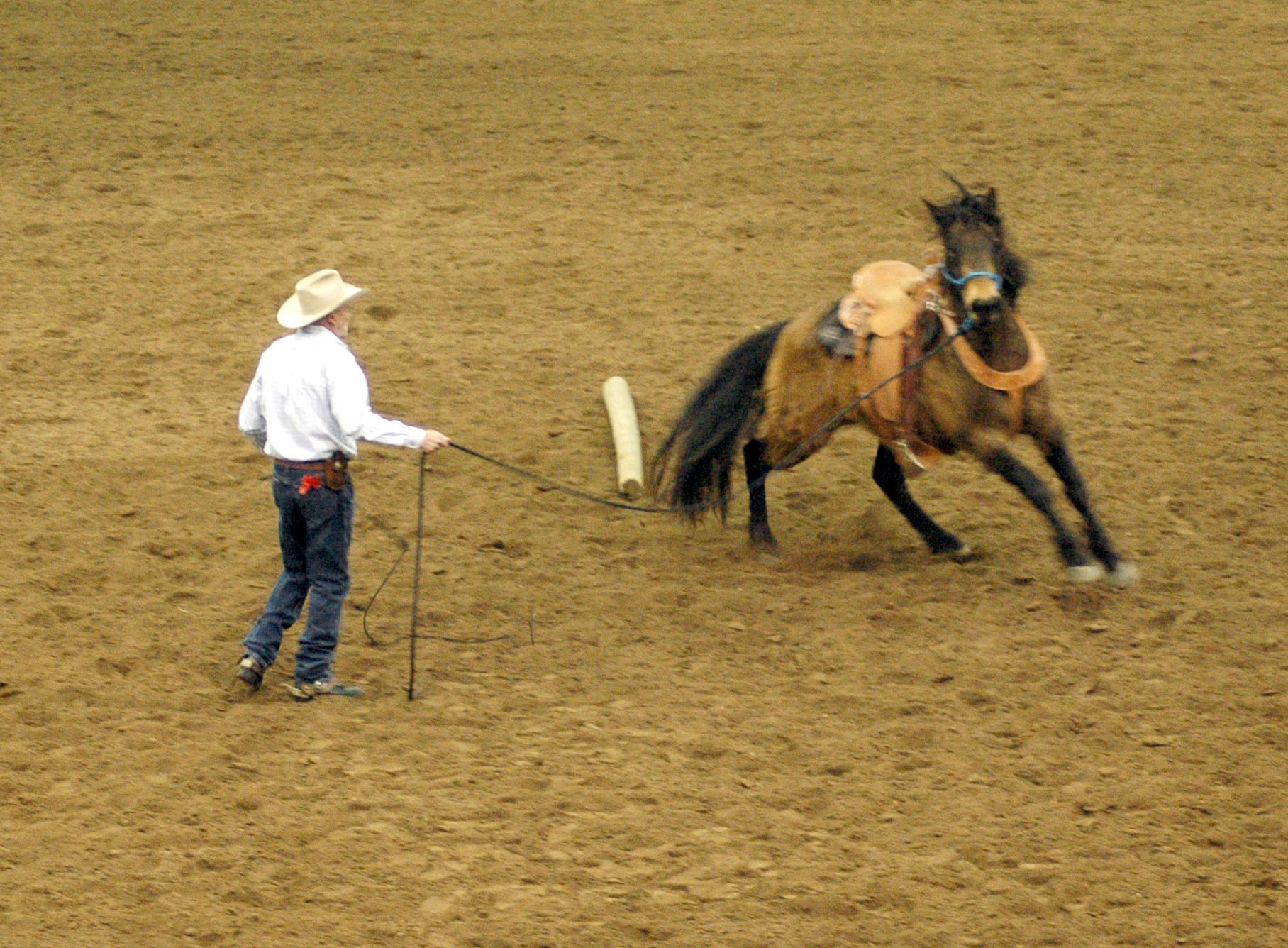
Thirty years ago, I traveled to stables and ranches to work with problem horses. One horse in particular refused to cross water and the owner asked me to come and see what I could do. I got on the horse and the horse started to buck. I dealt with that and headed for the creek where I had no problem crossing. When we got back, the owner asked how we did and I said fine except he bucked at first. The owner replied, “Oh, he always does that but he gets through it. That’s just the way he is.” I realized then that every horseman has his or her own standards and own definition of a “broke horse.”
I was just starting with problem horses at that time and I knew behavior had to do with good foundation training but I never realized how many people put up with a lot of stuff that they should not. A truly broke horse does not exhibit the types of behaviors described above. A horse that spooks at everything or a horse that you can’t steer is not a broke horse. In all riding disciplines, there are horses being ridden, jumped or shown that I wouldn’t consider broke horses. This is because of the emotional level of the horse.
The rider may have pretty good control during a performance but because of a high emotional level, the horse is stiff, non responsive and difficult to handle on the ground and in the saddle. When we work with horses here are the ranch, we work with three different aspects of the horse. First, we train the physical part of the horse. In other words, we must have control of the horse on the ground. The horse must lead without balking or pushing. It must walk up to a trailer and go right in without protest and without the use of any special aid. We must also have control of the horse under saddle, whether on the trail or in the arena. The horse must turn and stop and respond to cues when requested to do so.
Secondly, we work on the mental aspect. The terminology we use here is “business ears.” We want to see the ears coming back toward us so that we know the horse is paying attention and waiting for the next cue. If the head is up in the air and the ears and eyes are focused out towards the hills, the horse is not engaged and is not paying attention.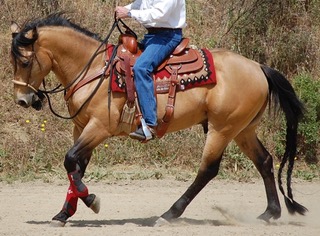
The third aspect is the emotional level or flight instinct of the horse. Many great jumping and dressage horses (I am not picking on any single discipline because the same can be said for western performance horses), perform well but get them outside the arena and their emotional level kicks in and then we have some other issues to deal with. We need to be able to control that flight instinct or emotional level to maintain good, safe behavior.
A fourth aspect is health and nutrition. Good feed obviously relates to the physical well being of a horse but the type of feed also has an impact on the emotional level. The best feed you can give a horse is hay. It offers good nutrition and is good for the gut but if the horse is working hard or the hay is not top quality, you may need to add some grain. Many of our horses here in training are on grain and supplements. A pastured horse may be fat but if the coat is dull and there is no liveliness in the eyes, good nutrition is lacking. Conversely, if you feed a horse too much “hot food,” the energy level and the emotional level will rise and the horse may become unruly. If you want a performance horse or one that simply feels strong and fit when you ride,
proper nutrition is essential.
These are the three aspects that we need to consider when we train our horse
to be a really “broke horse.” In my opinion, a horse that is not “broke” may
only start to become dependable after nine months or a year of somewhat consistent riding/training. Owners often ask me for a really nice, finished horse. Several years ago, I thought that was a horse ridden in a bridle, that was very responsive to the seat, leg and rein aids. A horse that responded to subtle cues from the rider and the rider’s hands and legs almost appeared not to move. I thought this would be a great horse to have but then I thought a horse like this might be comfortable on the trail or around cows but could you take this horse to a parade?
So, in conclusion, I have expanded my definition of a “broke horse.” We have to train the physical, mental and emotional parts of the horse, that is the complete package. You don’t have a finished or broke horse without educating all three aspects of the horse. To have a horse that you are in total harmony with, that is balanced and responds to your lightest touch, your lightest cues, all three aspects of the horse must be educated.
I’d like to stop here and finish up next month with what I now think is a totally “broke horse.” I’ll discuss how you can set standards and goals for your horse and how you can reach them. I’ll also cover more on the topic of health and nutrition.
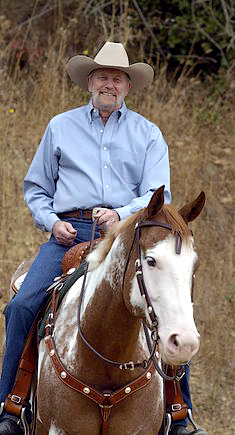
Charles’ warm and relaxed demeanor has made him a favorite at regional and national clinics and demonstrations. Charles offers extensive hands-on learning programs for every level of horsemanship. He may be reached through his web site: http://www.charleswilhelm.com/














































